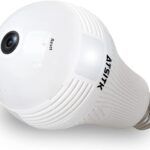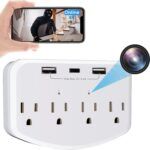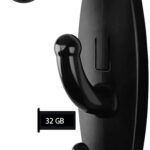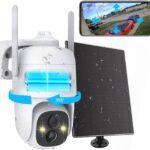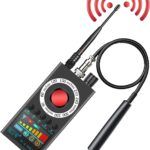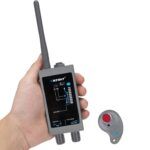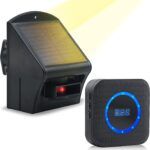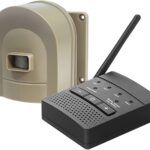- How does a pet tracker work?
Pet trackers come in different types such as GPS, RF, and Bluetooth, and each has its unique way of working. GPS pet trackers work by using GPS technology to determine the location of the pet and relay the information to a mobile device or computer. RF pet trackers use radiofrequency technology and work within a certain range to locate the pet. Bluetooth pet trackers work by pairing with a mobile device via Bluetooth, and you can use your mobile device to locate the pet.
The pet tracker attaches to the pet’s collar, and you can monitor the pet’s location through a mobile app or web-based platform. Some pet trackers come with additional features such as activity tracking, geofencing, and health monitoring.
- How does a pet GPS tracker work?
A pet GPS tracker is a device that uses global positioning system (GPS) technology to track the location of a pet. The device usually attaches to a collar or harness worn by the pet and sends location updates to a smartphone app or computer. The GPS technology allows for real-time tracking of the pet’s location, and some devices also offer additional features such as activity monitoring and geofencing.
When the GPS tracker receives location information, it uses cellular data or satellite signals to transmit the data to the designated receiver, such as a smartphone or computer. The receiver then displays the pet’s location on a map or sends alerts if the pet enters or leaves a designated area. Overall, pet GPS trackers offer pet owners peace of mind by allowing them to track their pet’s whereabouts and ensure their safety.
- Are pet GPS trackers accurate?
Pet GPS trackers can be accurate, but the level of accuracy may vary depending on the type and quality of the device. GPS technology has become more sophisticated and reliable over the years, and modern pet GPS trackers use this technology to provide accurate location tracking for pets. However, factors such as obstructions, weather conditions, and battery life can affect the accuracy of the tracker. It’s important to research and choose a high-quality pet GPS tracker with good user reviews to ensure the best accuracy possible. Additionally, some pet GPS trackers may have additional features, such as activity tracking and geo-fencing, which can enhance the accuracy of the device by providing more data and information about the pet’s location and behavior.
- What is the range of a pet tracker?
The range of a pet GPS tracker can vary depending on the type of device and the location. Some trackers have a range of a few hundred feet, while others can track your pet’s location from miles away.
GPS trackers that use cellular networks typically have a wider range, allowing you to track your pet’s location from anywhere with cellular coverage, even worldwide. However, these trackers also require a monthly subscription fee for cellular service. Radio frequency trackers, on the other hand, have a shorter range but do not require a monthly fee as they rely on radio signals. It’s important to choose a tracker with a range that is suitable for your needs and the environment in which your pet will be using it.
- How long does the battery last on a pet GPS tracker?
The battery life of a pet GPS tracker is an important factor to consider when purchasing a device. The battery life can vary depending on the model and the features of the tracker. Some trackers have a battery life that lasts for a few days, while others can last for several weeks or even months. The battery life also depends on how frequently you use the device to track your pet’s location. If you use the tracker frequently, the battery life will be shorter than if you only use it occasionally.
To get the most out of your pet GPS tracker, it’s essential to monitor the battery life regularly and charge the device as needed. Some devices have a low battery indicator that alerts you when the battery is running low, while others may have a longer battery life but take longer to recharge. When selecting a pet GPS tracker, consider the battery life and charging time to ensure that it meets your needs and provides accurate location tracking for your pet.
- Do pet locators work for all types of pets?
Pet trackers are a great tool for keeping track of your furry friends, but not all trackers are created equal. The type of pet you have can affect whether or not a specific tracker will work for them. Most GPS trackers are designed for dogs and cats, but there are also trackers available for other types of pets like birds, horses, and even turtles. However, it’s important to note that some trackers may not work as well for certain types of pets, especially those with smaller body sizes.
When choosing a tracker for your pet, it’s important to do your research and make sure the device is compatible with your pet’s size and behavior. Some RF & GPS trackers are specifically designed for larger pets and may not be suitable for smaller breeds or animals. Additionally, some trackers may not work well for pets that like to swim or dig, so it’s important to choose a device that can handle your pet’s activity level.
- Can a GPS tracker be used to train my pet?
While GPS trackers are primarily used for location tracking and safety purposes, some pet owners also use them as a training tool. Some GPS trackers offer geofencing features that allow you to set up a virtual boundary around a specific area. When your pet leaves this designated area, you will receive an alert on your phone or other device. This can be useful for training your pet to stay within certain boundaries, such as in your backyard or a specific room in your home.
Additionally, some trackers offer activity monitoring features that track your pet’s daily activity levels and provide you with data on how much exercise they’re getting. This can be helpful for pet owners who want to ensure their pet is getting enough exercise and may use this information to adjust their pet’s exercise routine or diet. However, it’s important to note that pet locators should not be used as a replacement for proper training methods and should only be used in conjunction with positive reinforcement training techniques.
- Do I need a monthly subscription for my pet GPS tracker?
The need for a subscription to use a pet tracker depends on the type of tracker you have. Some pet trackers, such as radio frequency (RF) trackers, do not require a subscription as they use a short-range signal to communicate with the receiver. On the other hand, GPS pet trackers rely on cellular networks to transmit the location data to your smartphone or computer, and therefore require a subscription to a cellular service provider. The subscription fee covers the cost of data transmission and access to the service provider’s network.
You always have to consider the cost of the subscription when choosing a GPS pet tracker. While some trackers offer a free subscription for a limited period, others require a monthly or yearly fee. It is also important to check the coverage area of the service provider to ensure that the tracker will work in your area. Some providers may have limited coverage in rural or remote areas, which could affect the accuracy and reliability of the tracker.
- Is a tracker safe for my pet?
Pet trackers are generally considered safe for pets. The devices are designed to be lightweight and comfortable for pets to wear, and they typically do not cause any harm or discomfort. However, it is important to choose a high-quality tracking device from a reputable manufacturer and to follow the manufacturer’s instructions for use. It is also important to regularly check the tracker’s fit to ensure that it is not too tight or too loose, as an ill-fitting device can cause discomfort or even injury to the pet.
- Are there any legal concerns with using a GPS tracker on a pet?
In most countries, it is legal to use a GPS tracker on a pet. However, it is always a good idea to check local laws and regulations. Some areas may have specific rules about the use of GPS trackers on pets, and it is important to comply with these regulations to avoid legal issues.
Additionally, it is important to consider the privacy of others when using a GPS tracker on a pet. This can be an issue if you have a dog walker, or if you leave your pet with friends or in pet hotels during trips. Some people may feel uncomfortable if they believe their location is being tracked without their consent. It is important to use pet surveillance devices responsibly and to respect the privacy of others while ensuring the safety and well-being of pets.
- Are pet trackers waterproof?
Many pet trackers are designed to be waterproof, as they need to withstand exposure to rain, splashes, and other wet conditions. This is especially important for dogs that love to swim or play in water. However, it’s important to note that not all GPS trackers are created equal when it comes to waterproofing. Some may be water-resistant and can withstand a bit of moisture, while others are completely waterproof and can be submerged in water without damage.
When shopping for a pet locator, it’s important to check the product specifications and ensure that it is waterproof if your pet is likely to be exposed to wet conditions. Some trackers may also come with additional protective cases or covers to increase their resistance to water and moisture. It’s always better to be safe than sorry when it comes to your pet’s safety and the functionality of their tracker.
- Can I set up geofencing with a pet GPS tracker?
Yes, many pet GPS trackers allow for the creation of geofences. A geofence is a virtual boundary that you can set up around a specific area, such as your home or a park. When your pet enters or exits this boundary, you will receive an alert on your phone or computer. This feature can be especially helpful if your pet tends to wander or if you want to monitor your pet’s activity while you’re away from home. Some pet GPS trackers even allow you to set up multiple geofences, so you can keep tabs on your pet’s movements in different areas.
To set up a geofence, you typically need to use the accompanying app or software that comes with your dog or cat tracker. From there, you can choose the location you want to set up the geofence around, and adjust the size and shape of the boundary as needed. Once the geofence is set up, you’ll receive notifications whenever your pet crosses the boundary, giving you peace of mind and helping you keep track of your furry friend’s whereabouts.
- What is the difference between a GPS tracker and a microchip?
A GPS tracker and a microchip are two distinct technologies used for pet identification and location tracking. A microchip is a small electronic device that is implanted under the skin of a pet and contains a unique identification number. If a lost pet is found and taken to a shelter or vet, they can scan the microchip and use the identification number to contact the pet’s owner. On the other hand, a GPS tracker uses satellite technology to provide real-time location tracking of a pet, which can be viewed on a mobile device or computer.
While a microchip can help reunite a lost pet with its owner, it does not provide real-time location tracking or alerts if a pet wanders out of a designated area. GPS trackers, on the other hand, offer more advanced features that allow pet owners to keep track of their pet’s location and set up geofencing to receive alerts if their pet strays too far from a designated area.
- Can a GPS tracker be used for other purposes besides tracking my pet's location?
While the primary function of a GPS tracker for pets is to track their location, some models come with additional features that can be helpful for pet owners. For example, some trackers have activity monitors that track your pet’s movements, allowing you to see how much exercise they are getting throughout the day. Other trackers may include temperature sensors that alert you if your pet is in an area that is too hot or cold. Some models even have built-in speakers that allow you to talk to your pet remotely.
Additionally, some pet GPS trackers can be used for other purposes besides tracking pets. They can be used to track other valuable items such as cars, bicycles, or luggage while traveling. This makes them a versatile and useful tool for anyone who wants to keep tabs on their belongings. However, it’s important to note that these trackers are designed specifically for pets and may not be as effective for tracking other items.
Pet GPS and RF trackers are a must-have for every pet owner who wants to ensure the safety and security of their furry friends. With these trackers you will always know where your pet is, whether they are in your backyard or on the other side of town.
Showing all 4 products:

LeonardCreek Pet GPS Tracker & Locator
$29.99
TabCat Cat Collar Tracker
$119.99
Tractive GPS Cat Tracker
$49.99
Tractive GPS Dog Tracker
$49.99
Pet trackers are a great tool to help pet owners keep an eye on their furry friends. There are two main types of pet trackers: GPS trackers and RF trackers. GPS trackers use satellites to track your pet’s location, so you can see where they are at all times. RF trackers, on the other hand, use radio frequencies to track your pet’s location within a certain range. Both types of trackers can be used for dogs and cats, and some are specifically designed for one or the other.
Pet trackers are especially useful for pet owners who have pets that like to wander or escape. They can also be helpful for tracking pets during outdoor activities such as hiking or camping. Pet location trackers are also great for pet owners who have older or sick pets, as they can help keep track of their movements and ensure they don’t get lost. Additionally, pet GPS trackers can provide peace of mind for pet owners who worry about their pets being stolen. With so many options available, pet owners can find a tracker that fits their needs and helps keep their furry friends safe.
Pet Tracker FAQs
You may also need:
Pet trackers are becoming an essential tool for pet owners who want to keep their pets safe and healthy. Pet GPS and RF trackers offer a wide range of features such as real-time tracking, geo-fencing, and activity monitoring that enable owners to stay connected with their pets at all times.
With the increasing popularity of pet trackers, the market now offers a range of options to fit different budgets and preferences. Pet owners can now enjoy the peace of mind that comes with knowing that they can locate their pets in case they wander off or are lost.
Overall, pet trackers are an excellent investment for pet owners who value the safety and well-being of their furry friends.


